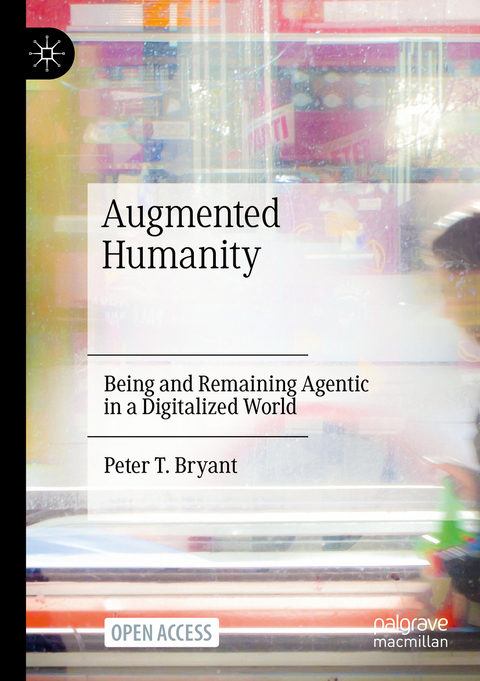
Augmented Humanity
Springer International Publishing (Verlag)
978-3-030-76447-0 (ISBN)
This book examines the problematics and prospects for digitally augmented humanity. In doing so, it maps the terrain for a future science of augmented agency. It will have cross-disciplinary appeal to students and scholars of applied psychology, cognitive and behavioral science, organizational psychology and management, business, finance, and digital cultures and humanities.
Peter T. Bryant is Adjunct Professor of Entrepreneurship at IE Business School in Madrid, Spain. His research focuses on the behavioral aspects of decision making and innovative capability, and especially their cognitive psychological origins.
Chapter 1: Modeling Augmented Humanity.- Chapter 2: Historical Metamodels of Agency.- Chapter 3: Agentic Modality.- Chapter 4: Problem Solving.- Chapter 5: Cognitive Empathy.- Chapter 6: Self-Regulation.- Chapter 7: Evaluation of Performance.- Chapter 8: Learning.- Chapter 9: Self-Generation.- Chapter 10: Toward a Science of Augmented Agency.
"This book provides an insightful introduction to the social and behavioral implications of human-computer integration, aimed at a wide audience from both human and computer sciences. The proposed conceptualization of augmented agency can provide a structural basis for exploring intelligence augmentation and promote further research in the field." (Evangelia Kavakli, Computing Reviews, October 5, 2022)
“This book provides an insightful introduction to the social and behavioral implications of human-computer integration, aimed at a wide audience from both human and computer sciences. The proposed conceptualization of augmented agency can provide a structural basis for exploring intelligence augmentation and promote further research in the field.” (Evangelia Kavakli, Computing Reviews, October 5, 2022)
| Erscheinungsdatum | 05.08.2021 |
|---|---|
| Zusatzinfo | XXIII, 308 p. 30 illus. |
| Verlagsort | Cham |
| Sprache | englisch |
| Maße | 148 x 210 mm |
| Gewicht | 435 g |
| Themenwelt | Geisteswissenschaften ► Psychologie ► Allgemeine Psychologie |
| Geisteswissenschaften ► Psychologie ► Psychoanalyse / Tiefenpsychologie | |
| Geisteswissenschaften ► Psychologie ► Verhaltenstherapie | |
| Sozialwissenschaften | |
| Schlagworte | Agency • Applied Psychology • Artificial Intelligence • behavioral science • Bounded Rationality • Cognitive Bias • cognitive empathy • cognitive plasticity • Collaboration • digitization • freedom of thought • Metacognition • microeconomics and preferential choice • open access • organizational design and management • Problem Solving • Rationality • social cognitive psychology • Trust |
| ISBN-10 | 3-030-76447-8 / 3030764478 |
| ISBN-13 | 978-3-030-76447-0 / 9783030764470 |
| Zustand | Neuware |
| Haben Sie eine Frage zum Produkt? |
aus dem Bereich


